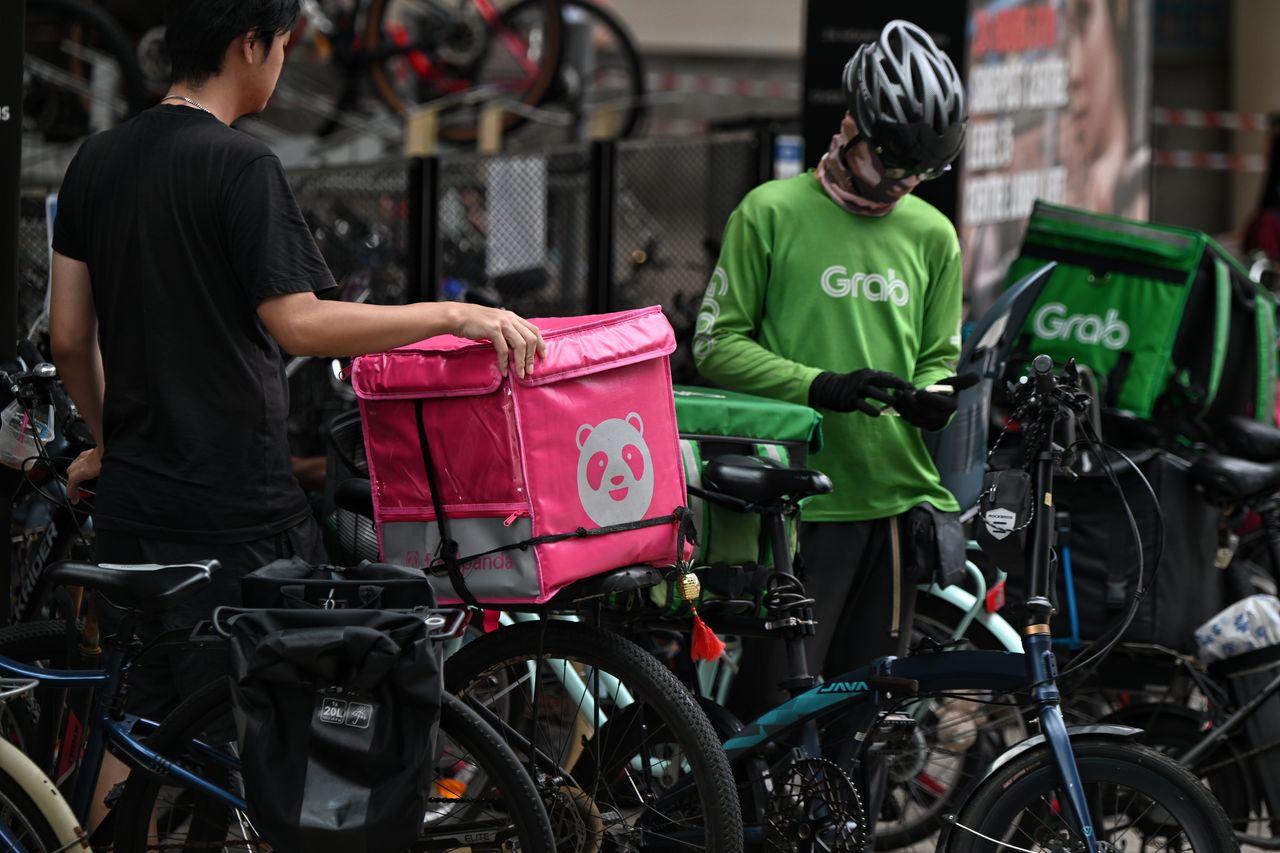By Vanessa Paige Chelvan for The Straits Times
Copyright tnp

SINGAPORE – A work group formed by the Government has released a raft of recommendations to stamp out illegal platform work and tackle other issues facing platform workers.
The recommendations unveiled on Sept 11 include requiring platform operators to notify the Ministry of Manpower (MOM) if they suspect foreigners of carrying out platform work, which can be done only by Singaporeans or permanent residents.
Broadly, the group’s 10 recommendations aim to protect the livelihoods of Singapore’s roughly 67,600 regular platform workers and champion fairer and more transparent payment structures and incentive schemes.
The group also suggested that platform operators should conduct more regular and stringent identity checks on workers, and that the Government should look into strengthening enforcement and increasing penalties for rule-breakers in the ride-hailing sector.
The Government should also engage online platforms to take down apps, channels and advertisements that enable the matching of illegal rides, and strengthen its ability to block or remove such platforms, the group said.
At a press conference on Sept 11, Senior Minister of State for Transport Sun Xueling said tougher laws could be introduced.
“We will look at legislation that we already have, to see whether we need to strengthen them,” Ms Sun said. This includes the Point-to-Point Passenger Transport Industry Act and the Online Criminal Harms Act.
Formed in July to tackle the challenges faced by platform workers, the trilateral work group comprises MOM, the Ministry of Transport, the National Trades Union Congress and ride-hailing platform Grab.
The group said in a statement on Sept 11 that the recommendations would be adopted in phases by nine platform operators here, which account for 99 per cent of platform workers. The operators are Amazon Flex, ComfortDelGro Zig, Deliveroo, foodpanda, Gojek, Grab, Lalamove, Ryde and Tada.
Platform workers are those who contract with operators to provide services, primarily in ride-hailing and delivery. Their ranks here include private-hire car drivers working for companies such as Grab and Gojek, and delivery riders for services like GrabFood, foodpanda and Deliveroo.
The group was led by Ms Sun, Senior Minister of State for Manpower Koh Poh Koon, NTUC secretary-general Ng Chee Meng and Grab group managing director of operations Yee Wee Tang.
The Government, together with platform operators and three NTUC-affiliated platform work associations, should raise awareness of the dangers of using illegal ride-hailing services and the consequences of doing so, the group said in one of its recommendations.
For example, foreign-registered vehicles that offer trips across the border or within Singapore can put passengers at risk, as these vehicles do not have the proper licences or insurance coverage for passengers. They also affect the livelihoods of licensed taxi and private-hire car drivers.
Trips by local or foreign drivers that are arranged through informal channels such as messaging app Telegram also carry these risks.
Since July, enforcement at hot spots such as Singapore’s land checkpoints have netted 73 foreign-registered vehicles that provided services illegally.
The group’s suggestion of setting up dedicated reporting channels for platform workers and the public to report foreigners flouting the rules has already been adopted.
Members of the public and platform workers can report the provision of illegal ride-hailing services by foreign-registered cars on the Land Transport Authority’s OneMotoring website. Those reporting foreigners suspected of doing platform work can do so on MOM’s Report an Infringement webpage.
While the group said operators, platform work associations and the Government should encourage workers and the public to report suspected illegal work, they should not take it upon themselves to confront those suspected of such activity for their safety and that of others.
Between Jan 1, 2023, and June 30, 2025, MOM received an average of 50 complaints a year about potential illegal platform work. The majority of these complaints were unsubstantiated.
The group called on the Government to come down harder on illegal ride-hailing services and urged food delivery platform operators to improve the detection and prevention of illegal activities, such as by conducting more regular and stringent identity checks on delivery workers.
These platform operators that outsource delivery work should also check that the outsourced workers used are in the country legally.
Operators must also notify MOM if they suspect that platform workers are allowing foreigners to misuse their accounts to work here illegally.
MOM will investigate all reports of account misuse and operators will ban such platform workers for at least 24 months if an offence is committed under the Employment of Foreign Manpower Act.
Although the group was formed on the back of calls by the labour movement to tackle the issue of foreigners doing delivery work illegally here, checks on the ground have found that this does not appear to be happening on a large scale.
Of 644 delivery workers checked in recent MOM enforcement operations, just four were found to be working illegally.
This allowed the authorities to understand the extent of the problem, which is smaller than what platform workers had perceived, Dr Koh and Mr Ng noted.
Still, these checks had two good outcomes. “The recent checks would have sent a strong signal to the potentially illegal workers out there that this is not the space they should (enter),” said Dr Koh.
In addition to deterrence, Mr Ng said it was important to carry out checks to get a handle on the extent of the problem and give assurance to platform workers.
Payment structures, incentive schemes should be more transparent
The workgroup also urged platform operators to work with the platform work associations – the National Delivery Champions Association, the National Private Hire Vehicles Association and the National Taxi Association – to develop a set of industrywide principles for issues related to payment or incentive schemes, or both.
Workers had raised concerns about opaque payment and incentive schemes, leading them to work long hours for an uncertain amount of pay.
Speaking in Parliament in September 2024, Dr Koh said the median income of a platform worker ranges from $1,500 to $2,500 a month.
In June, Grab was forced to delay the roll-out of changes to its incentive schemes after backlash from drivers, who were worried that the changes would dent their earnings.
These anxieties around income uncertainty should be better addressed, including through regular meetings, the group suggested.
The platform work associations should also encourage workers to prioritise their health and safety, the group said.
Food delivery platform operators, added the group, should also clarify their outsourcing practices so as to assure platform workers and encourage workers to fulfil orders in areas of high demand.



